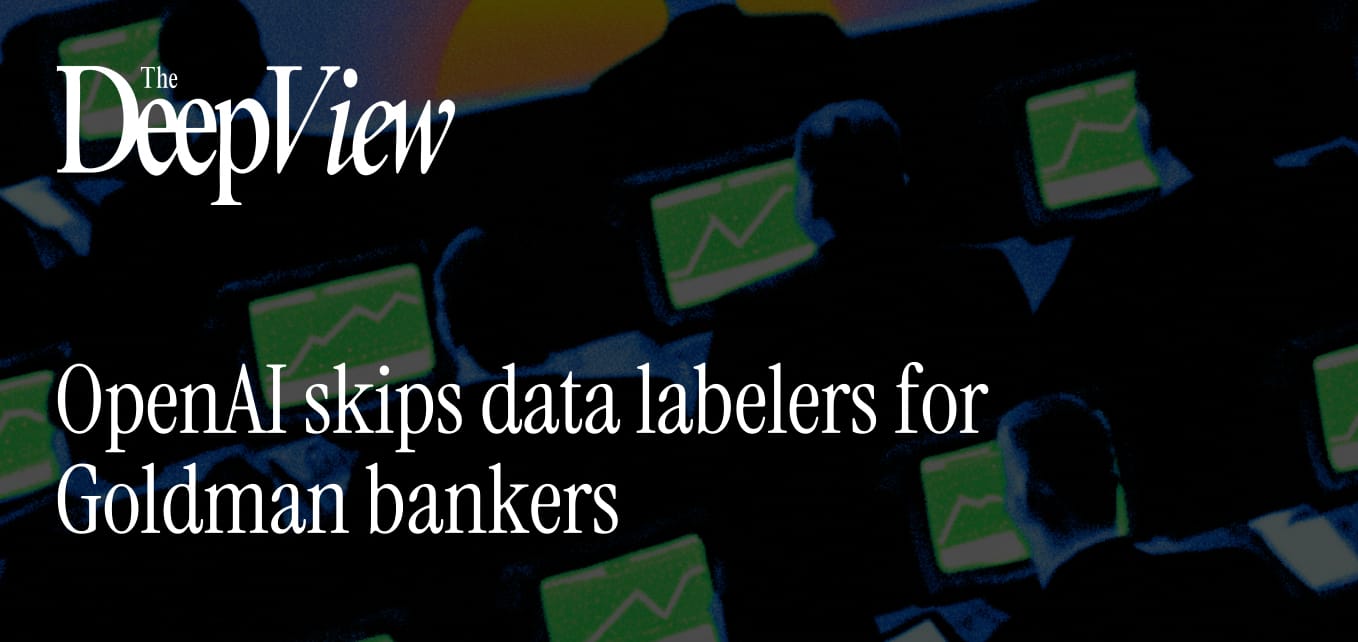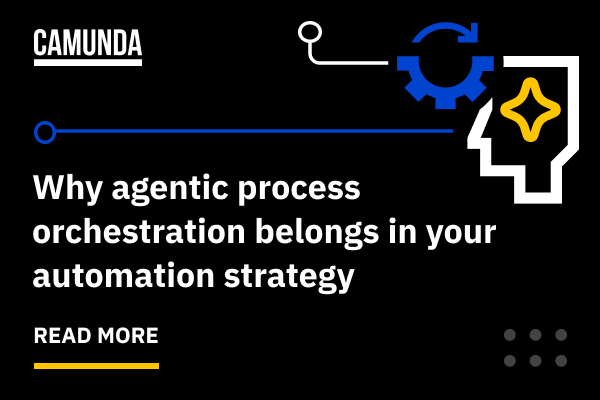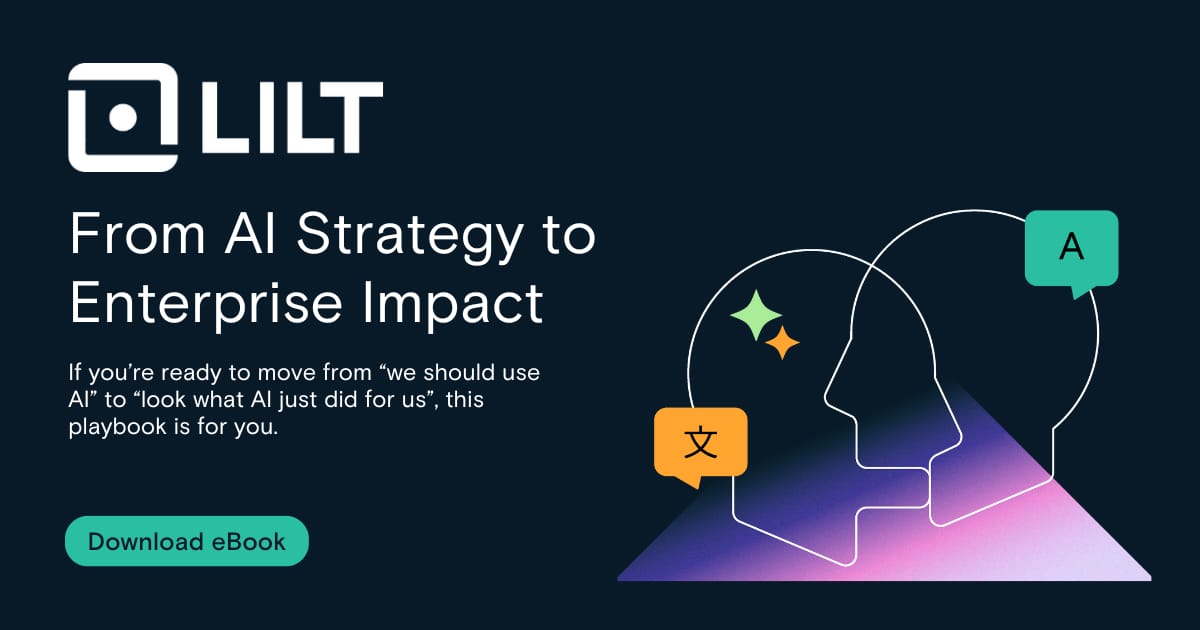OpenAI ditches data labelers for Goldman bankers
October 23, 2025

Welcome back. Reddit is adding to the growing copyright fight between content providers and data-hungry AI firms. In a lawsuit filed Wednesday, the social media company alleges that Perplexity and three other “data-scraping service providers” are stealing its content to train AI. Comparing these firms to “would-be bank robbers,” Reddit claims these firms are participating in “industrial-scale, unlawful circumvention of data protections” without entering into a formal agreement with the site.
IN TODAY’S NEWSLETTER
1. OpenAI skips data labelers for Goldman bankers
2. AI video tools are worsening deepfakes
3. Google, GM partnership signals self-driving race
PRODUCTS
OpenAI skips data labelers for Goldman bankers

OpenAI is sidestepping the data annotation sector by hiring ex-Wall Street bankers to train its AI models.
In a project known internally as Project Mercury, the company has employed more than 100 former analysts from JPMorgan, Goldman Sachs and Morgan Stanley, paying them $150 an hour to create prompts and financial models for transactions such as IPOs and corporate restructurings, Bloomberg reported. The move underscores the critical role that curating high-quality training datasets plays in improving AI model capabilities, marking a shift from relying on traditional data annotators to elite financial talent to instruct its models on how real financial workflows operate.
“OpenAI’s announcement is a recognition that nobody writes financial documents better than highly trained analysts at investment banks,” Raj Bakhru, co-founder of Blueflame AI, an AI platform for investment banking now part of Datasite, told The Deep View.
That shift has the potential to shake up the $3.77 billion data labeling industry. Startups like Scale AI and Surge AI have built their businesses on providing expert-driven annotation services for specialized AI domains, including finance, healthcare and compliance.
Some AI experts say OpenAI’s approach signals a broader strategy: cut out the middlemen.
“Project Mercury, to me, clearly signals a shift toward vertical integration in data annotation,” Chris Sorensen, CEO of PhoneBurner, an AI-automation platform for sales calls, told TDV. “Hiring a domain expert directly really helps reduce vendor risk.”
But not everyone sees it that way.
“While it’s relatively straightforward to hire domain experts, creating scalable, reliable technology to refine their work into the highest quality data possible is an important — and complex — part of the process,” Edwin Chen, founder and CEO of Surge AI, told TDV. “As models become more sophisticated, frontier labs increasingly need partners who can deliver the expertise, technology, and infrastructure to provide the quality they need to advance.”

OpenAI hiring former bankers to create training data might sound like a flex, but it’s also a sign of how far it still has to go. As the pressure to monetize AI grows, the company is trying to prove its models can perform serious, industry-specific work on the job. Training them to develop financial models is a logical next step. However, paying $150 an hour for curated data highlights a deeper issue: building useful AI still requires a significant amount of manual effort. While Project Mercury may help OpenAI pitch itself to Wall Street clients, it also highlights the limitations of current models and the significant amount of hand-holding they still require to succeed.
TOGETHER WITH CAMUNDA
The Key to Better AI? Agentic Process Orchestration
Without a conductor, a group of musicians in a room is just a blur of random notes. But with one, they become an orchestra – a complex, seamless being that is greater than the sum of its parts.
Interestingly enough, the same goes for your AI agents. Sure, a bunch of them can be useful for your business, but it takes proper orchestration to unlock their full potential… and that’s where this handy guide from Camunda comes in. Not only will it show you how to maximize your AI agents’ capabilities by leveraging agentic process orchestration, but it will also help you untap AI’s true potential (all while maintaining compliance with your business processes).
CULTURE
AI video tools are worsening deepfakes

Deepfakes have moved far beyond the pope in a puffer jacket.
On Wednesday, Meta removed an AI-generated video designed to appear as a news bulletin, depicting Catherine Connolly, a candidate in the Irish presidential election, falsely withdrawing her candidacy. The video was viewed nearly 30,000 times before it was taken down.
“The video is a fabrication. It is a disgraceful attempt to mislead voters and undermine our democracy,” Connolly told the Irish Times in a statement.
Though deepfakes have been cropping up for years, the recent developments in AI video generation tools have made this media accessible to all. Last week, OpenAI paused Sora’s ability to generate videos using the likeness of Martin Luther King Jr. following “disrespectful depictions” of his image. Zelda Williams, the daughter of the late Robin Williams, has called on users to stop creating AI-generated videos of her father.
And while Hollywood has raised concerns about the copyright issues that these models can cause, the implications stretch far beyond just intellectual property and disrespect, Ben Colman, CEO of Reality Defender, told The Deep View.
As it stands, the current plan of attack for deepfakes is to take down content after it’s been uploaded and circulated, or to implement flimsy guardrails that can be easily bypassed by bad actors, Colman said.
These measures aren’t nearly enough, he argues, and are often too little, too late. And as these models get better, the public’s ability to discern real from fake will only get worse.
“This type of content has the power to sway elections and public opinion, and the lack of any protections these platforms have on deepfakes and other like content means it's only going to get more damaging, more convincing, and reach more people,” Colman said.
TOGETHER WITH LILT
Turning AI Hype Into Real Impact
Imagine this: your company’s buzzing with talk of AI, but no one’s quite sure how to turn all that hype into something real.
That’s where Operationalizing AI at Scale: From Strategy to Enterprise Impact swoops in like your business’s secret weapon.
This eBook doesn’t just talk about AI in theory—it shows you how to weave it into the fabric of your organization. You’ll learn:
How to spot genuine AI opportunities
When to build, buy, or choose a partner or tool
Ways to craft a strategy that actually sticks long term
It’s packed with practical insights for business leaders who want to turn innovation into measurable results—and do it without losing their sanity or their budget. If you’re ready to move beyond the “AI experiment” phase and start seeing real enterprise-wide impact, this is the playbook you’ve been waiting for.
HARDWARE
Google, GM partnership signals self-driving race

On Wednesday, Google and carmaker General Motors announced a partnership to develop and implement AI systems in its vehicles.
The partnership aims to launch Google Gemini AI in GM vehicles starting next year, followed by a driver-assistance system that will allow drivers to take their hands off the wheel and their eyes off the road in 2028. The move is part of a larger initiative by GM to develop a new suite of software for its vehicles.
GM CEO Mary Barra said at an event on Wednesday that the goal is to “transform the car from a mode of transportation into an intelligent assistant.”
The move is a logical step for Google, which has seen success with the launch of Waymo in five major cities, with more on the way. It also makes sense for GM, which has struggled to break into self-driving tech after folding its Cruise robotaxi unit at the end of last year.
However, as AI models become bigger and better, tech firms are trying to figure out what to do with them. Given Google’s broader investment in AI, forging lucrative partnerships that put the company’s tech to use could be a path to recouping returns.
Though self-driving tech could prove to be a moneymaker down the line, it still comes with its fair share of regulatory hurdles (including a new investigation opened by the National Highway Traffic Safety Administration after a Waymo failed to stop for a school bus).
Plus, Google has solid competition with the likes of conventional ride share companies like Uber and Lyft, especially as these firms make their own investments in self-driving tech.
LINKS

Adam Raine’s parents allege OpenAI allowed suicide discussion prior to his death
Adobe reportedly in talks to acquire AI video startup Synthesia for $3 billion
Google’s quantum algorithm runs 13,000 times as fast as supercomputers
AI sales startup Sumble emerges from stealth with $38.5 million in funding
Multimodal AI firm Fal reportedly hits $4 billion valuation with $250 million in funding
Conversational AI startup Sesame raises $250 million, opens beta

Manus 1.5: An AI agent for a range of tasks, including research, analysis, and full-stack web app creation
ProblemHunt: A platform filled with unsolved problems to spark ideas for startups.
Vendr: An AI agent for vendor contract negotiations.
Smooth: A serverless browser agent by Circlemind AI for task automation.
Shotly AI: An AI-powered headshot and portrait generator.

POLL RESULTS
Which AI-powered browser do you currently use and like the most?
OpenAI Atlas (12%)
Perplexity Comet (16%)
Dia (8%)
Google Chrome (AI Overviews) (27%)
Haven't tried any yet, but I will (20%)
Don't plan on trying any (17%)
The Deep View is written by Nat Rubio-Licht, Aaron Mok, Faris Kojok and The Deep View crew. Please reply with any feedback.
Thanks for reading today’s edition of The Deep View! We’ll see you in the next one.

“This was easy. I don't know anything about skiing but do know the poles have to be straight and in his hands.” “The trees are too close for tricks like that. ” “The logo underneath the AI generated image just didn't ring true. ” |
“Just seems like a real pic from the 1980s” “[The other image] looked too stark to be real.” |

Take The Deep View with you on the go! We’ve got exclusive, in-depth interviews for you on The Deep View: Conversations podcast every Tuesday morning.

If you want to get in front of an audience of 450,000+ developers, business leaders and tech enthusiasts, get in touch with us here.






